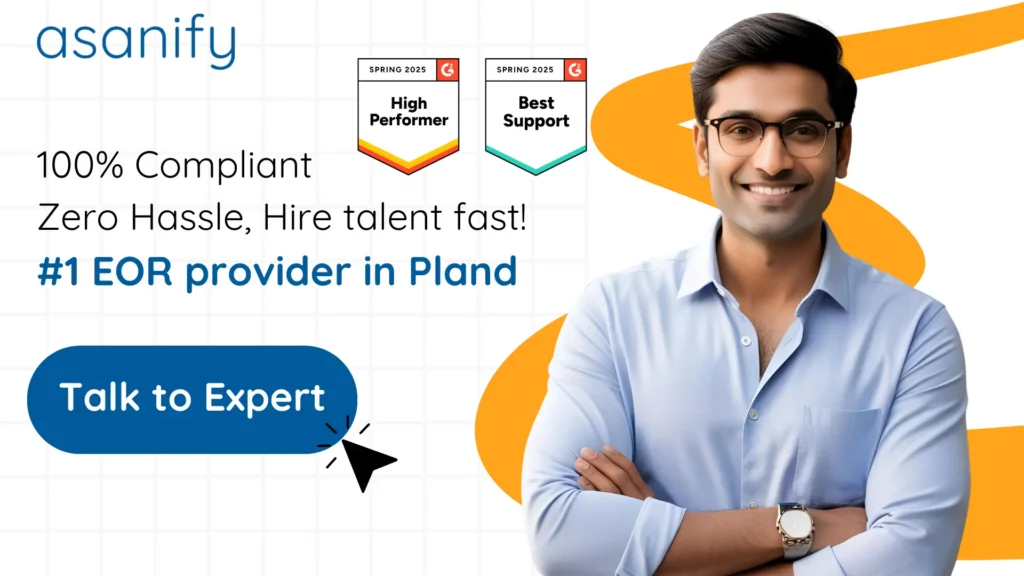Expanding your business into Poland offers access to one of Central Europe’s fastest-growing economies and a strategic hub for trade, technology, and manufacturing. However, before hiring in Poland, employers must understand the country’s work authorization process. Securing the correct work permit and visa for non-Polish employees is essential for compliance with immigration regulations and ensuring smooth onboarding.
Navigating these requirements can be complex, as they vary based on the employee’s nationality, role, and intended stay. Employers must ensure all documentation is complete, accurate, and submitted within required timelines. Partnering with immigration experts or an Employer of Record (EOR) can significantly streamline the process, reduce administrative burdens, and mitigate compliance risks.
Table of Contents
- Overview of Poland’s Work Permit and Visa System
- Understanding Requirements and Eligibility
- Who Needs a Work Permit in Poland
- Key Conditions for Obtaining a Polish Work Visa
- Employer and Employee Eligibility
- Types of Work Visas in Poland
- Comparing Polish Work Visa Types
- Advantages of the EU Blue Card
- Application Process for Employers
- Required Documents
- Processing Timelines
- Employer Responsibilities and Compliance
- Consequences of Non-Compliance
- Maintaining Ongoing Compliance
- Tips for a Smooth Application Process
- How an Employer of Record Can Help
- How Asanify Can Help
- FAQs
Overview of Poland’s Work Permit and Visa System
Poland operates a structured immigration system, with requirements differing depending on nationality, occupation, and duration of employment. While citizens of the EU/EEA and Switzerland can work freely under EU freedom of movement rules, most non-EU nationals must obtain a valid work permit and/or residence permit before starting employment.
Key points:
- EU/EEA/Swiss citizens – No work permit required under EU labor mobility agreements.
- Non-EU nationals – Must obtain a work permit before starting employment.
- Employer sponsorship – Most permits require the employer to initiate the application with the local Voivodeship Office.
- Single Permit (Karta pobytu z prawem pracy) – Combines work and residence authorization for stays longer than 3 months.
- Special Programs – For highly skilled workers, seasonal roles, or intracompany transfers.

Understanding Requirements and Eligibility
Before applying, employers and employees must understand Poland’s immigration rules. Non-EU/EEA/Swiss nationals require authorization to work, which may be a separate work permit, a combined residence and work permit, or entry under special programs such as the EU Blue Card.
Who Needs a Work Permit in Poland
Most non-EU/EEA and non-Swiss nationals require a work permit before employment begins. EU/EEA and Swiss citizens are exempt under free movement rights. Certain exemptions apply for short-term work or specific professions.
Key Conditions for Obtaining a Polish Work Visa
Applicants generally must:
- Have a valid job offer from a registered Polish employer.
- Meet minimum wage and job requirements as per Polish labor law.
- Provide proof of qualifications or relevant work experience.
- Hold valid health insurance coverage.
- Maintain a clean criminal record.
Employer and Employee Eligibility
- Employers must be registered and meet labor law standards, sometimes proving no suitable Polish/EU candidate is available (Labor Market Test).
- Employees must meet job-specific criteria, salary thresholds, and qualification requirements.
Suggested Read: The Complete 2025 Guide to Labour Laws in Poland for Global Companies
Types of Work Visas in Poland
Poland offers multiple work authorization pathways:
- Type A Work Permit – For employees hired by a Polish employer.
- Single Permit – Combined residence and work authorization for long-term employment.
- EU Blue Card – For highly skilled professionals with higher salary thresholds.
- Intra-Corporate Transfer (ICT) Permit – For managers, specialists, and trainees transferred within a company.
- Seasonal Work Permit – For temporary work in agriculture, tourism, and hospitality.
Comparing Polish Work Visa Types
| Visa Type | Purpose | Duration | Notes |
| Type A Work Permit | Standard employment | Up to 3 years | Employer-specific, renewable |
| Single Permit | Long-term work & residence | 1–3 years | Combines work and residence permits |
| EU Blue Card | Highly skilled roles | 1–3 years | Higher salary threshold, fast-track to residency |
| ICT Permit | Intra-company transfers | 1–3 years | For managers, specialists, trainees |
| Seasonal Work Permit | Temporary seasonal jobs | Up to 9 months | Agriculture, tourism sectors |

Advantages of the EU Blue Card
The EU Blue Card is favored for attracting high-value talent, offering faster processing, mobility within the EU, and a route to long-term residence.
Key benefits:
- Priority processing for eligible candidates.
- Mobility within other EU Blue Card member states.
- Pathway to permanent residence after 5 years.
- Family reunification rights.
Application Process for Employers
- Job Offer – Employer provides a signed employment contract.
- Permit Application – Employer submits the work permit request to the Voivodeship Office.
- Approval & Visa – Once approved, the employee applies for a national visa (Type D) at the Polish consulate if required.
- Arrival & Registration – Employee registers with local authorities and, if needed, applies for a residence card.
Required Documents
- Signed employment contract.
- Valid passport.
- Proof of qualifications or work experience.
- Health insurance documents.
- Labor Market Test results (if applicable).
- Application forms and fee payment proof.
Processing Timelines
- Standard work permits – 4 to 10 weeks.
- EU Blue Card – Often faster if eligibility criteria are met.
- Processing speed depends on completeness of documents, permit type, and local office workload.
Employer Responsibilities and Compliance
Employers must:
- Ensure valid work authorization before employment starts.
- Pay wages according to Polish law.
- Maintain accurate employee records.
- Report changes in employment to authorities.
Consequences of Non-Compliance
- Financial penalties for illegal employment.
- Revocation of permits.
- Restrictions on future hiring of foreign nationals.
Maintaining Ongoing Compliance
- Track permit expiry dates.
- Renew on time.
- Keep employment contracts compliant.
- Monitor changes in immigration law.

Tips for a Smooth Application Process
- Start early to account for administrative delays.
- Submit complete, accurate documentation.
- Consider EOR services to simplify compliance and payroll.
How an Employer of Record Can Help
Partnering with an Employer of Record (EOR) in Poland allows companies to legally employ foreign talent without setting up a Polish legal entity. The EOR becomes the official employer, managing payroll, benefits, HR compliance, and immigration processes on behalf of the hiring company. This approach reduces administrative burdens, accelerates hiring, and ensures full compliance with Poland’s labor and immigration regulations.
Additionally, EOR providers prepare and manage employment contracts in accordance with Polish labor laws, minimizing the risk of legal disputes. They also handle work permit and visa applications, ensuring a smooth and timely onboarding process for international employees. By leveraging an EOR, businesses can focus on operations and growth while leaving complex employment compliance to experienced local experts.
Suggested Read: Remote Employees Onboarding Checklist with EOR in Poland
How Asanify Can Help
Navigating Poland’s work authorization process can be complex, especially for businesses hiring internationally. Asanify provides an all-inclusive Employer of Record (EOR) solution that simplifies hiring and workforce management in Poland.
Our services include everything from obtaining the right work permits to processing payroll and employee benefits—ensuring you remain fully compliant with Polish labor laws without the need to set up a local entity.
With Asanify, you can:
- Hire and onboard foreign talent quickly without administrative delays
- Ensure compliance with all national labor and immigration regulations
- Expand into Poland without the cost and complexity of creating a Polish company
If your objective is to grow your team in Poland efficiently, Asanify’s expertise and end-to-end services make the process seamless.
FAQs
Typically 1–3 years, depending on the permit type, with extensions possible.
Usually between 50–100 EUR, plus consular visa fees.
Yes, if their visa/residence permit allows the type of work.
An assessment to check if no suitable local/EU candidate is available before hiring a non-EU worker.
Yes, especially for the EU Blue Card.
Yes, under most long-term permits.
The employee must stop working unless a renewal is granted.
To simplify compliance, payroll, and immigration without setting up a local company.
Not to be considered as tax, legal, financial or HR advice. Regulations change over time so please consult a lawyer, accountant or Labour Law expert for specific guidance.

